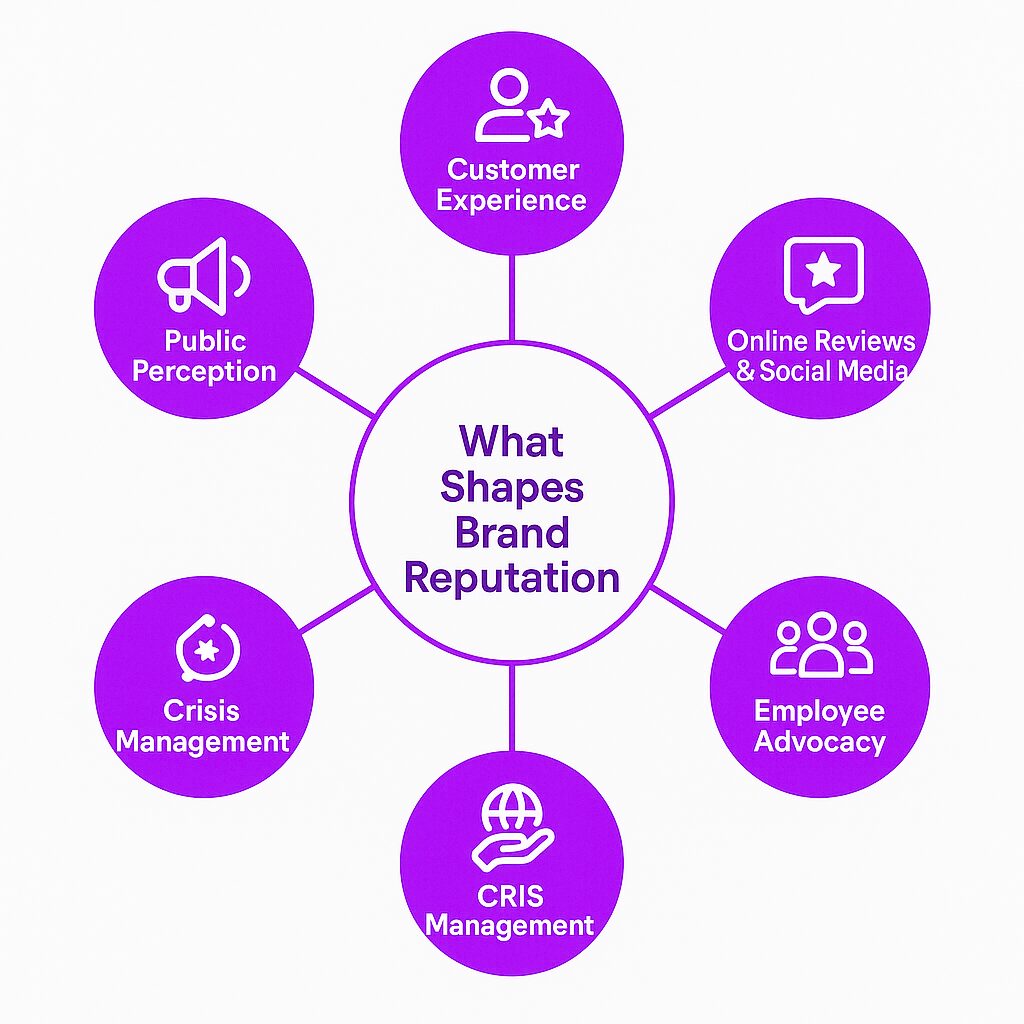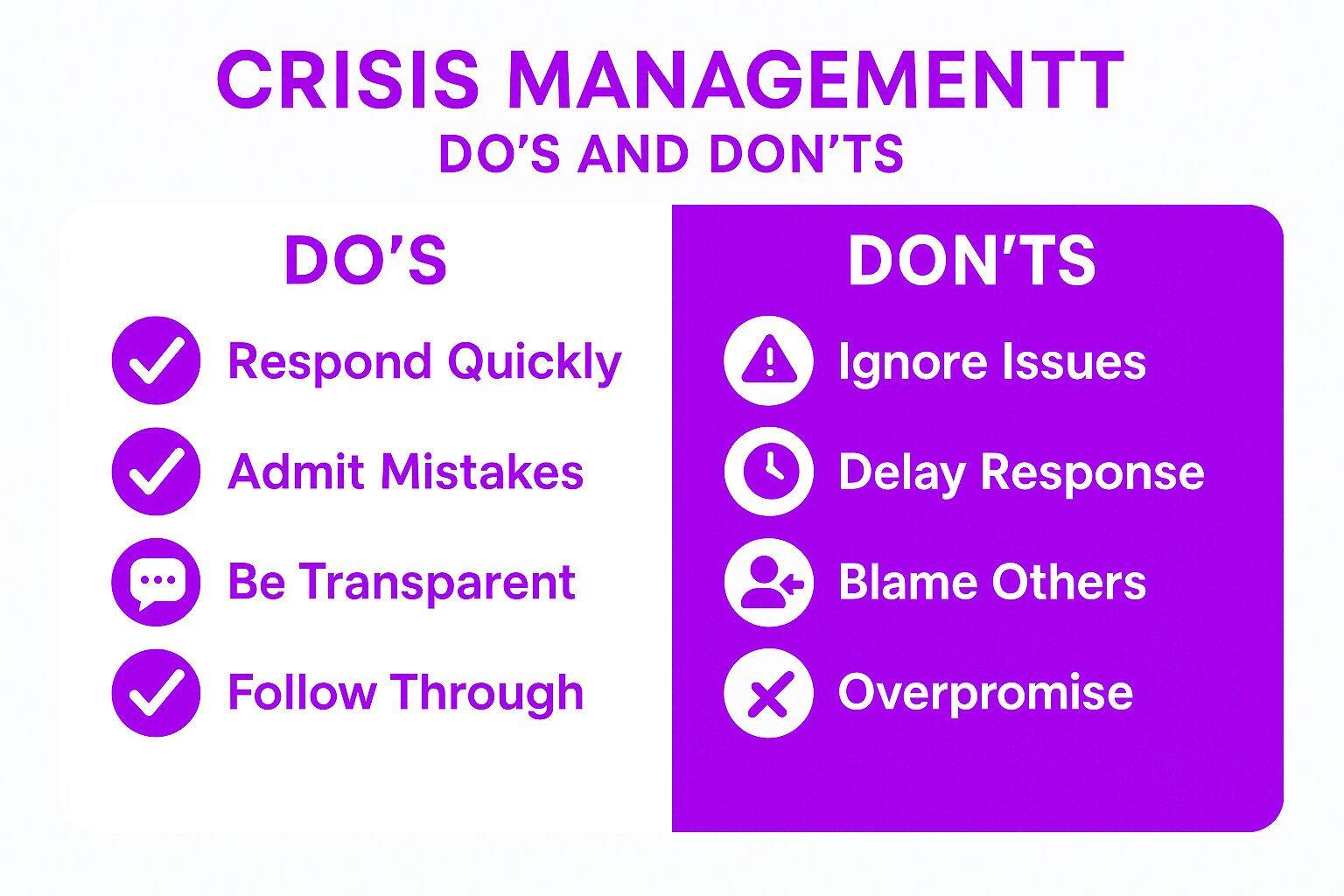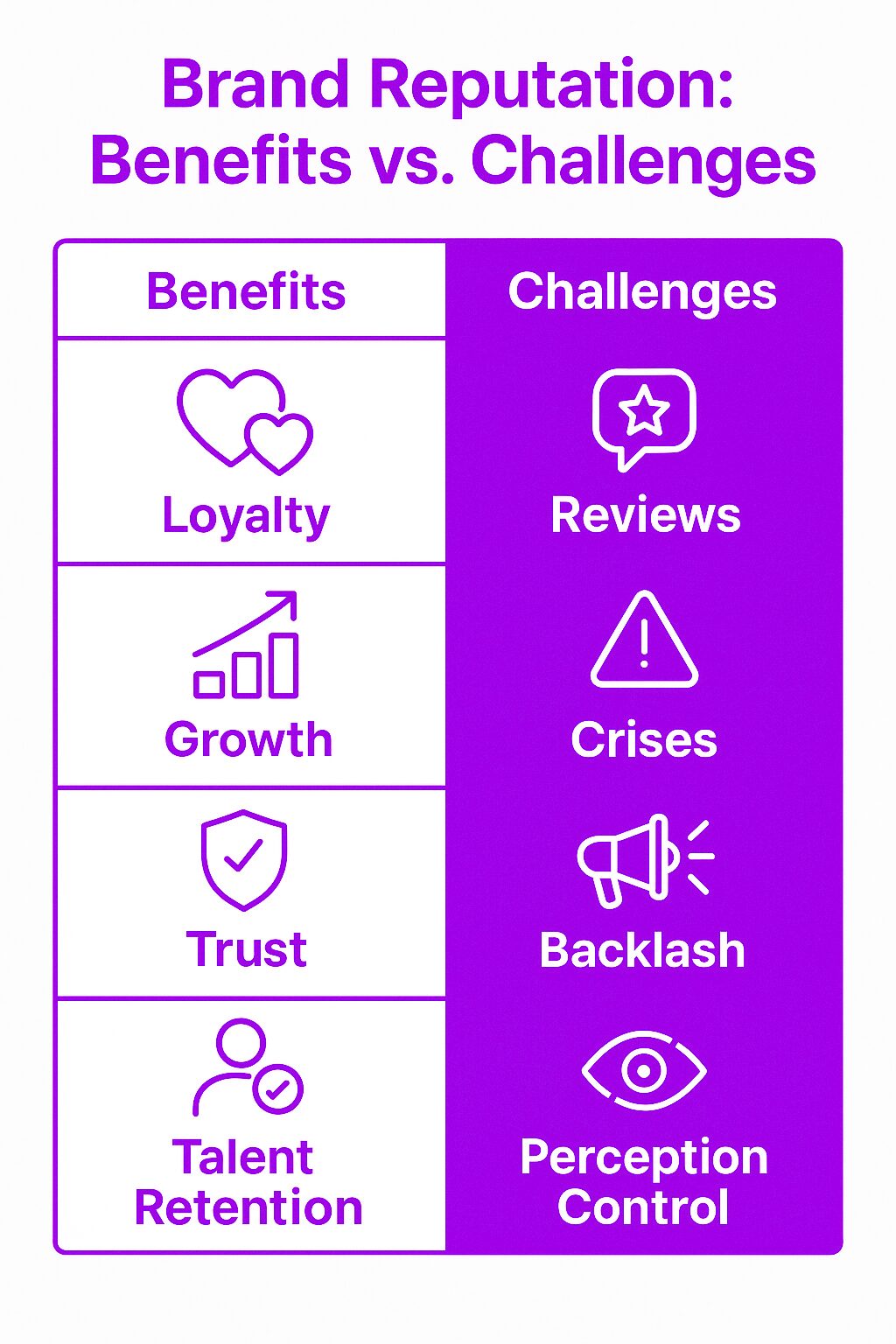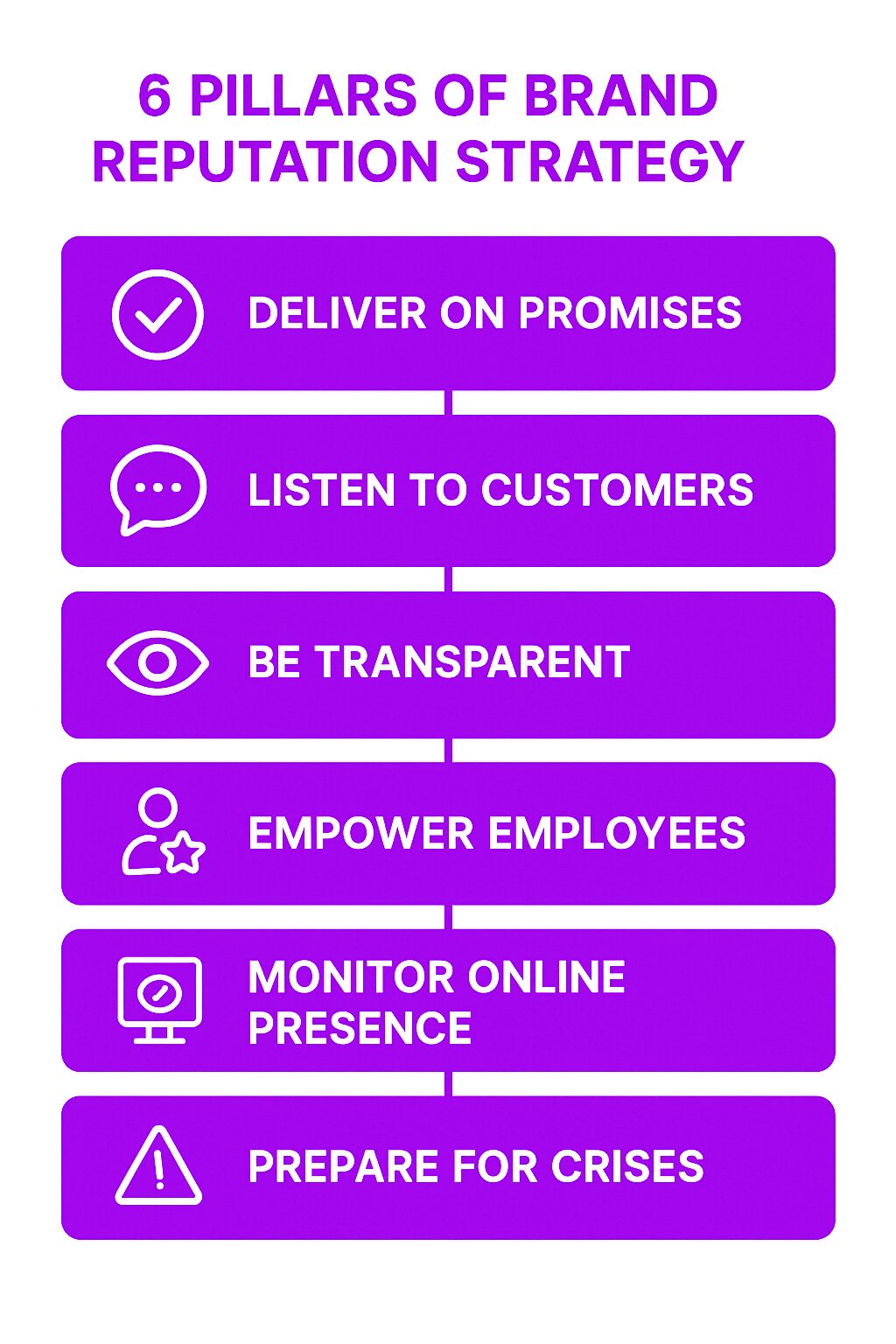Brand reputation is how people perceive a company. It’s the sum of customer experiences, public perception, online reviews, media coverage, and corporate actions. A brand’s reputation influences trust, sales, and business longevity.
Why Brand Reputation Matters
Reputation directly impacts a company’s ability to attract customers, retain employees, and build long-term success. A strong brand reputation is crucial for achieving business success, as it leads to increased customer loyalty, trust, and sales. A strong reputation means customers trust the brand, while a negative reputation can drive people away. With online reviews, social media, and news cycles shaping perceptions, businesses must actively manage how they are seen.
The Role of Trust
Customers want reliability. They choose brands they believe in. If a company delivers on promises, treats customers well, and stands by its brand values, its reputation strengthens. If it fails in any of these areas, trust erodes.
Business Growth
A positive brand reputation increases sales and attracts investors. People are willing to pay more for brands they trust. Companies with a strong reputation attract investors, partners, and top talent.
Employee Engagement
Employees are brand ambassadors. If they believe in their brand’s values and the company’s reputation, they are more engaged and motivated. A bad reputation makes it harder to recruit and retain talent.
What Shapes Brand Reputation?
Customer Experience
Every interaction matters. From product quality to customer service, experiences shape opinions. A single negative experience can spread quickly through word-of-mouth and online reviews. Conversely, positive experiences lead to satisfied customers who enhance brand reputation through positive feedback and word-of-mouth referrals.
Online Reviews and Social Media
Reputation is public. Customers research brands before making decisions. Positive reviews attract new customers, while bad reviews can deter them. A strong social media presence amplifies both praise and complaints, significantly impacting brand reputation.
Employee Advocacy
Employees influence reputation. Their experiences inside the company shape how they talk about it outside. Positive workplace culture and a strong brand identity lead to better external perception.
Corporate Social Responsibility (CSR)
Customers expect brands to take a stand on social and environmental issues. Companies that support ethical practices and sustainability strengthen their brand’s reputation, as these actions demonstrate a commitment to values that build customer loyalty and trust.
Crisis Management
How a company responds to problems defines its reputation. Mistakes happen. What matters is how a brand addresses them. Ignoring issues or responding poorly can lead to a damaged brand reputation, resulting in long-lasting negative effects. Owning mistakes and taking corrective action can rebuild credibility.
Benefits of a Strong Brand Reputation
Competitive Advantage
Customers prefer brands with a good brand reputation over unknown or poorly perceived ones. A good brand reputation, built on quality products, customer service, and ethical practices, sets a company apart from competitors.
Customer Loyalty
A positive brand image helps retain customers by fostering trust and loyalty. Loyal customers recommend the brand, increasing referrals and reducing the need for aggressive marketing.
Higher Revenue
Trust leads to sales. A well-crafted brand reputation strategy enhances public perceptions and drives sales. Customers are more likely to spend money on brands they respect, even at a premium price.
Employee Retention
People want to work for respected companies that align with their brand’s values. A strong reputation built on these values attracts top talent and reduces turnover.
Crisis Resilience
A good reputation provides a buffer during tough times, helping to mitigate the effects of a negative brand reputation. Customers and employees are more forgiving of missteps when a brand has built long-term credibility.
Challenges in Managing Brand Reputation
Negative Reviews
One bad experience can go viral. Businesses must monitor and respond to reviews quickly to mitigate damage and prevent a damaged brand reputation.
Social Media Backlash
Customers voice concerns publicly. If a company mishandles a situation, social media can amplify the issue, leading to a negative brand reputation, which can make reputation recovery difficult.
Crisis Management
Scandals and public relations missteps can ruin years of goodwill. Brands must have a brand reputation strategy for addressing crises effectively.
Managing Public Perception
Not everything is within a company’s control. External factors like media coverage, competitor actions, and market trends influence reputation. This is why brand reputation management is crucial; it involves overseeing a brand’s public perception to foster trust and loyalty among consumers, significantly impacting business success in today’s digital landscape.
How to Build and Protect Brand Reputation Strategy
Deliver on Promises
Consistency builds trust. If a company says it values customer service, it must follow through in every interaction. Aligning actions with brand values not only reinforces this trust but also builds a positive corporate reputation and enhances customer loyalty.
Listen to Customers
Feedback matters. Businesses that actively engage with customer concerns and improve based on input strengthen their reputation. Satisfied customers, who provide positive feedback, not only enhance brand reputation but also attract new clients through word-of-mouth referrals, creating a cycle of increasing customer loyalty and business success.
Maintain Transparency
Hiding problems worsens them. Customers respect honesty. Admitting mistakes and addressing them head-on earns credibility and builds a positive brand reputation.
Encourage Employee Advocacy
Happy employees talk positively about their workplace. Companies that treat employees well and align with the brand’s values benefit from strong internal and external reputations, enhancing employee advocacy.
Monitor Online Presence
Reputation management requires vigilance. Tracking brand mentions, responding to reviews, and engaging with customers online helps maintain control over perception. A strong social media presence is crucial, as it allows for direct engagement with customers, fostering positive interactions and reinforcing brand reputation.
Be Ready for Crisis
Every company faces challenges. A proactive crisis plan ensures that when issues arise, the brand responds quickly and effectively, which is a crucial aspect of brand reputation management.
Examples of Brand Reputation in Action
Positive Reputation: Apple
Apple has a strong reputation for quality, innovation, and customer loyalty, which contributes to its favorable brand reputation. Even when facing criticism, its long-standing credibility helps maintain customer trust.
Negative Reputation: Volkswagen
The Volkswagen emissions scandal led to a negative brand reputation, damaging trust. Customers felt deceived. Recovery required significant transparency and corrective actions.
Social Media Impact: United Airlines
A viral video of a passenger being forcibly removed led to massive backlash. The company’s initial response worsened the situation. A delayed apology and corrective actions helped rebuild some trust, but the damage lingered, resulting in a poor brand reputation that highlighted the long-term consequences of negative perceptions.
Final Thoughts
Brand reputation is a company’s most valuable asset. It influences customer trust, sales, employee retention, and crisis resilience. Managing reputation requires consistency, transparency, and proactive engagement. Businesses that prioritize reputation see long-term success, while those that neglect it risk losing customer loyalty and market standing. Having a well-crafted brand reputation strategy is crucial for enhancing public perceptions, managing crises, and responding to competition effectively.








